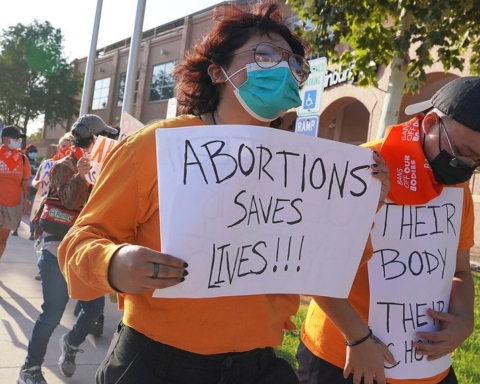With 2020 here an gone an we look for a greater future. But along the year an forward we have those that handle what we call life different. For most individuals we can handle what life throws at us an for some others there’s Sense of needing to escape. So I thought you know what how about I share some statistics an outlook from others point of view an life experience.
During these uncertain times, those who misuse or abuse alcohol and/or other drugs, are particularly vulnerable. The stress from social isolation and other COVID-19 related life changes can lead to or worsen substance use and misuse. There are also health risks resulting from chronic alcohol/drug use as it weakens the immune system and puts stress on the body’s cardiovascular and respiratory systems.
Alcohol
Alcohol consumption weakens the immune system and can increase the susceptibility to certain infectious diseases. For individuals who are dependent on alcohol, restricted access could lead to symptoms of withdraw. Alcohol withdraw can be fatal if not managed properly.
Cocaine
Smoking or snorting cocaine causes changes in the brain that results in constriction within the vascular system (arteries, veins, capillaries), and can lead to severe damage of the lung and respiratory system. Smoking cocaine can lead to many complications to the lungs such as swelling, hemorrhages, pulmonary edema, bronchitis, asthma, and emphysema.
Opioids and Methamphetamines
When opioids are taken at high doses, they act on the brainstem to slow breathing, which leads to decreased oxygen in the blood (hypoxemia). This puts opioid users at risk of an overdose, and is why opioids are particularly dangerous and often fatal. Methamphetamine use is particularly dangerous because it constricts the blood vessels, which can lead to pulmonary damage and hypertension.
Smoking and Vaping
We know that when you smoke or vape either tobacco or marijuana, you are at risk for health consequences such as cancer and lung damage. In addition to smoking, emerging evidence suggests that vaping causes damage to lung cells and inflammation to lung tissue. This reduces the ability for the lungs to respond to infection. Because COVID-19 attacks the lungs, smoking and vaping may pose serious risks to those who contract COVID-19.
Addiction and Stress
People with addiction also have depression, anxiety, and other mental health concerns. During COVID-19, the constant flow of stressful news may lead to increased feelings of worry, anxiety, and stress. Although turning to alcohol and/or drugs may temporarily help you feel better, they cause changes in your brain that will make you feel worse. It is imperative that you seek out healthy activities that will help alleviate stress/anxiety/depression. Take a break from the news and social media. Watch a comedy, read a book, explore a relaxation or deep breathing app.
A tale of two epidemics: When COVID-19 and opioid addiction collide
I am a primary care doctor who has recovered from — and who treats — opiate addiction. I work in an inner-city primary care clinic in Chelsea, Massachusetts, which currently has the highest rate of COVID-19 in the state, due, in part, to poverty. These two experiences offer me a clear view of how these two epidemics — COVID-19 and opioid addiction — can impact and worsen each other. Two great epidemics of our generation are intersecting in ways that are additively deadly, and which highlight the urgent ways we must respond to some of the underlying fault lines in our society that are worsening both crises.
Social determinants of health create greater vulnerability
People who suffer from the disease of addiction are particularly vulnerable to both catching the coronavirus and having a more severe disease when they do catch it. There are many reasons for this, but they boil down to something called social determinants of health, which according to the CDC are “conditions in the places where people live, learn, work, and play [which] affect a wide range of health risks and outcomes.” In short, people suffering from addiction are vastly more vulnerable to coronavirus, as they are more likely to be homeless, poor, smokers with lung or cardiovascular disease, under- or uninsured, or have experienced serious health and socioeconomic issues from drug addiction. There are also millions of vulnerable incarcerated people, many of whom are stuck in jail due to their addictions and related nonviolent drug offenses.
Treatments and support systems may be disrupted
For someone struggling with addiction, virtually all of the services and treatments available to them have been disrupted by the COVID-19 epidemic. People are told to stay home, which directly contradicts the need to go to clinics to obtain methadone or other medications for treating addiction. Our government, in response, has relaxed regulations so that, in theory, clinics can give 14-day or even 28-day supplies to “stable” patients, so that they don’t have to wait in line and can adhere to social distancing for safety. Unfortunately, there are countless stories of patients not being granted this privilege, including at least one of my own patients.
Similarly, the government has relaxed some restrictions on buprenorphine prescribing, and has allowed some telephone prescribing, but this presupposes that there are doctors available that are healthy and certified to prescribe this medication, and that the pharmacies and doctors’ offices are functioning. Access to clean needles is affected as well. Additionally, may rehab facilities have limited new admissions, cancelled programs, or even shuttered their doors for fear of spreading coronavirus in a communal living setting.
But it’s always that first step. “Admitting It”.
Write by LaLa
Instagram: official_lala_baby_






